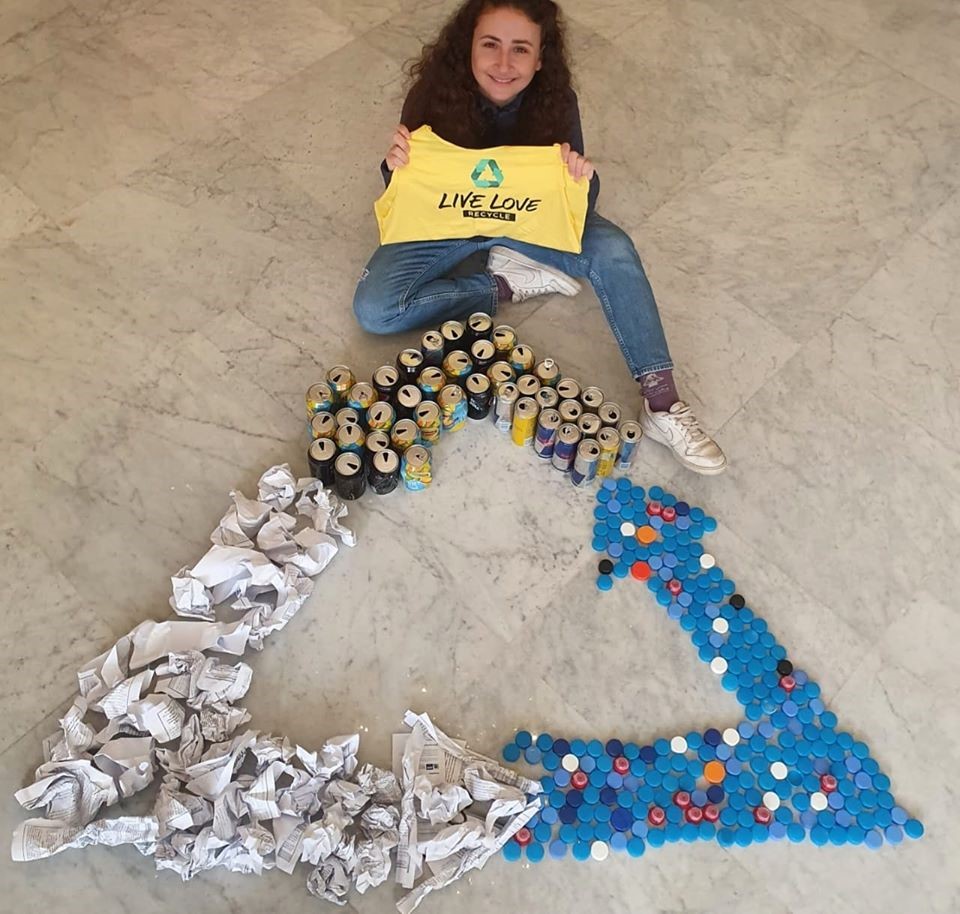WHAT IF... you raised customer engagement to solve key logistical challenges?
This strategy considers customers as key partners, who are well positioned to collaborate in the value creation of the service/product that is being offered. If citizens face a common challenge in their community (waste issues, sanitation inefficiencies...) they will not only be more likely to welcome a service/product that addresses that challenge but will also be more inclined to be a part of the solution itself- if incited in a smart way. Through effective customer relationship building, you can delegate some of your resource-intensive activities (such as sorting waste) to your customers. This can help you become financially sustainable while at the same time improving relationships with your customers and fostering a loyal community.
Turning challenges into opportunities
A number of service provision initiatives working under the premise of social entrepreneurship and seeking solutions to the deficiencies in services related to waste, water, sanitation, health management etc., can struggle to become financially sustainable. This is often due to the costly and/or time-consuming steps associated with their value creation process. Examples include labour-intensive logistics required for waste collection, sorting of waste, demand creation, high infrastructure costs etc. In such cases, both customer and the social business recognise there is a challenge which needs addressing, but the price customers would have to pay for the required services/products would be too high in the sectors we are dealing with – particularly in the case of basic services that need to be affordable for all.
If we take waste management as an example, we notice that the costs associated with the logistics of door-to-door collection and then of sorting waste in warehouses equipped with expensive infrastructure are significantly high. Since household waste still needs to be managed, such a case calls for finding a way to reduce time or financial investments for both sides: the household and the enterprise. A compromise whereby a core business activity, like sorting waste or delivering it to a central collection point, is fully or partially transferred to the customer can cut costs for the business, which in turn lowers the price of the service/product offered to the customer. Finding creative ways to engage customers in the value creation process can thereby help turning the cost challenges around basic service provision into opportunities to establish innovative service provision models.
Moving towards a stategy
In entrepreneurship, the concept of co-creation refers to a product or service design process in which input from consumers plays a central role. The thinking behind the Make Your Customers Work strategy is similar to that of co-creation in that it values customers’ input. By involving customers in solving some of your business’ logistical challenges or resource intensive activities can yield benefits for both customers and your business.
It is predominantly about identifying a mutual agreement between your business and your customers, which is founded on both trust and good communication. By establishing strong customer relationships your business can find it easier to divert some of its logistical or resource-intensive activities to customers, who can carry them out more efficiently and cheaply. Customers are not only treated as end-product users but as valued partners to the business.
Maintaining strong customer relationships is vital if the customers participate in the value generation of your business’ service/product and raise its value proposition. To make contributions to the value creation, the customer needs to trust you as a company and identify with your mission and vision. While this often requires significant initial investments, building effective customer relationships can eventually make it easier and cheaper to reach customers through the different channels about service updates or announcements when needed.
Customers of course have to see the benefits of collaborating with the business. Here a thorough customer behaviour analysis is needed for designing smart incentives for the targeted customer segment. In some cases, crisis situations or trends might even provide windows of opportunity to engage customers in solving the problems that your social/green business is tackling. When people are already sensitised about the pressing topic you are addressing (pollution, corruption, poverty...) it is easier to get them on-board, which reduces initial costs associated with customer engagement.
Regardless of your customers’ level of sensitisation, ensuring that customers are continually informed, involved and incited to carry out the relevant activities is crucial. In order to achieve this, it is highly beneficial if the business can tap into well-established outreach channels that allow to effectively reach the desired audience (or at least a good proportion of it). If such channels are available or accessible, your business can reduce investments into establishing communication channels and drawing customers attention to them and can instead fast forward into the customer relationship building, providing information on the required contributions and of course also selling of the service/product.
Case Study 1
Live Love Recycle is a recycling initiative in Beirut, Lebanon, that was created from the pressing need to solve the waste crisis in the city.It provides a door-to-door waste collection service upon request and transports the waste to its different warehouses in the city.
Live Love Recycle requests their customers to sort out their waste into different types of recyclables at home. Through a user-friendly app, they then request a waste pick-up. Live Love Recycle counts on effective customer communication to get its customers to carry out the otherwise very resource intensive activity of sorting waste at source. The delegation of this task allows the enterprise to cut down on investments into sorting facilities and related operational costs. This in turn allows them to charge customers less for the service.
For the communication and outreach to its customers, Live Love Recycle partners up with Live Love Beirut, a communication platform with a similar sustainability-oriented value chain that fosters social action and creates communities of hope. This outreach channel allows Live Love Recycle a fairly cost-efficient way to convey key messages to potential customers related to sorting at source. At the same time, it is a great channel for customer acquisition.
The timing of the founding of the Live Love Recycle initiative was another important success factor: Around the peak of the waste crisis in Lebanon in 2015/16, the demand from the public for sustainable waste management increased significantly. Customers were sensitised, but solutions were lagging behind. This combination provided a great starting point to leverage contributions from customers to jointly create a sustainable waste management solution.

Representing LLR work. Source: Live Love Recycle
Case Study 2
Green Track is a grass-root initiative in Tripoli that focuses on behavioural change in solid waste management for the residents of Jabal Mohsen, one of Tripoli’s neighbourhoods with a notoriously high rate of conflict. Green Track has two core activities: Green Women, a team of women from the same community who raise awareness about recycling practices by going door-to-door; and Green Men, a team of men who sort recyclables into their respective categories and then sell them (thus falling into the RRR paradigm). Around 600 homes have already been equipped with bins and are being serviced by Green Track’s teams, and more neighbourhoods are expected to be serviced in the future.
Green Track believes that waste can be a socialising facilitator for neighbourhoods, especially for those with political tensions such as Jabal Mohsen. Waste is an issue that everyone in the community can relate to, therefore a common challenge calls for a common solution. Green Track is in the preliminary phase of sensitising residents about the importance of recycling. Establishing strong customer relationships and raising awareness is the first step of the strategy; Green Track accomplishes this through door-to-door communication (unlike LiveLoveRecycle which accomplishes it through an app) by sending trained groups of local women to households in the neighbourhood. This takes into account the local dynamics and inherent suspicion towards externals in Jabal Mohsen by creating a warm, face-to-face sense of trust. By hearing about sorting at source from fellow members of their community, locals are incentivised to follow suit and give the new approach a try. Further, the Green Women ensure to take sufficient time to thoroughly explain the requirements for sorting at source, thus also reaching a less media-savvy generation. Once this step has been achieved successfully, some of the activities which are currently carried out by Green Women and Green Men could be delegated to the residents themselves.
Working with the community. Source: Green Track Facebook Page

